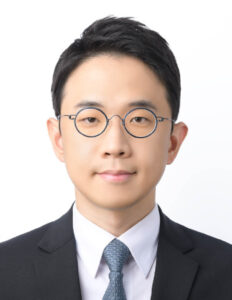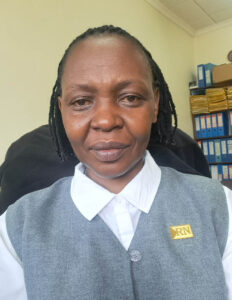Mentoring in research can provide an individual with skills outside of their own organisation or institution and support growth beyond the resources available to them at their workplace. Through mentoring, researchers can build collaboration opportunities nationally and internationally and develop skills that support them through the process of research, from idea design and grant writing, through to publication.
Aims of the program
Program overview
Eligibility of mentee
Applications are currently closed.
If you have any questions about the program, please email mentoring@thesri.org.

Dr Sungchul Huh, South Korea
Sungchul Huh is a Medical Doctor and Director of Spinal Cord Injury Program at Pusan National University Yangsan Hospital, Department of Rehabilitation Medicine, South Korea. Sungchul completed a PhD in 2022 and has published in a number of journal articles on SCI. He is Clinical Assistant Professor at Pusan National University School of Medicine and is well on his way to an established research career in SCI. Sungchul is looking to stretch his collaborative networks internationally, further the resources he has in his institution and develop his research topic, methodology and funding pathway options. The SRI has been able to match Sungchul with a well established, highly-regarded physician and expert researcher in the United States of America. Sungchul’s long term career goal is to be a leading clinician in the field of spinal cord medicine, with a focus on both clinical practice and research and we look forward to seeing the progress that he makes with his mentor in the area of urodynamics and SCI, in the year ahead.

Margaret Mungai, Kenya
Margaret Mungai is the Deputy Director of Nursing at Moi Teaching & Referral Hospital in Kenya. Margaret has an interest in research around spinal cord injury, skin integrity and continence compromise triad that is the basis of distress among the patients admitted in the teaching hospital where she works. Through her nursing leadership role, she is involved in drafting and implementation of nursing policies and protocols for evidence based practice. She has been seeking a mentor for guidance and counsel to undertake SCI interventional research to improve SCI outcomes in less resourced settings. This is in developing sound interventional research study protocols and exploring funding sources to implement planned study interventions to realise better outcomes for SCI patients in her region. Margaret’s aim is for better outcomes for patients with SCI in Kenya and has sought a mentor for guidance on protocol development and accessing patient research funding sources. The SRI has been able to match Margaret with an exceptional clinician researcher from the United States of America, who not only has a decorated career in the SCI field, but has a long standing affinity with Africa from his early years of life and research. We look forward to sharing the progress that they will make together.

Anjita Khadka, Nepal
Anjita Khadka is an ambitious early career researcher from Nepal, who is a Registered Nurse by background, further studied in Nutrition and is currently working as a part time Nutritionist at Spinal Injury Rehabilitation Center Nepal and also being involved in several Researches. Anjita has proactively sought an opportunity through the SRI Mentor Program to be matched with a mentor who can guide her to fulfil her innovative research proposal to improve nutrition following SCI in her country of Nepal. Her application to our mentor program demonstrates her commitment to improving nutrition following SCI, with her goal through mentorship being to enhance her research methodology, and identify opportunities for career development. The SRI have been able to match Anjita with an exceptional clinician researcher Mentor from Australia who is well published in the area of nutritional health in SCI, is originally from a similar level of developing country and we believe could greatly support Anjita in aspects of collaborative connections and funding approaches. We cannot wait to see how they progress together.

Olena Bychkovska, Ukraine / Switzerland
Olena has successfully completed a PhD in Health Sciences at the University of Lucerne, Switzerland, as part of her Marie Skłodowska-Curie and Swiss School of Public Health Fellowships. She worked at the Swiss Paraplegic Research Institute, managing interdisciplinary projects on health systems for persons with SCI across 22 countries. She analyzed data on topics of patient experience, service access, and utilization. Originally Ukrainian, Olena has vast international experience, living in different countries, including the USA, Norway, Sweden, and Switzerland, where she worked across sectors in, for example, the World Health Organization, International Organization for Migration, and the Ministry of Health. With a number of fellowships, scholarships, and publications already, Olena is well on her way to a successful career. We look forward to sharing the progress that Olena makes over the course of the mentor program as she works towards overcoming the challenges of transforming novel ideas into tangible realities.
Ever thought of being a mentor?
The SRI’s Mentor Program continues to grow and we are working hard to set up meaningful pairings that will benefit our mentees into the future. If you’ve ever considered being a mentor in a program like this, please contact us at mentoring@thesri.org so that we can keep your details on file for future rounds. Mentees are from a wide range of SCI disciplines and research areas, so your expertise and willingness to work with an emerging researcher could make all the difference.
Spinal Research Institute © . All Rights Reserved. Privacy Policy | Terms of Use | Disclaimer. ABN 11 162 207 169.
Web Design Melbourne Digital Rescue
